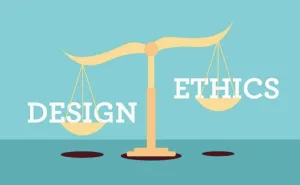Money used to move through banks — now it moves through belief.
According to Val Sklarov, the true revolution of crypto isn’t decentralization — it’s moral decentralization: the shift from institutional ethics to algorithmic ethics.
We no longer ask “Who do we trust?” but “What do we trust?”
1️⃣ The Illusion of Freedom Without Framework
Sklarov warns that decentralization without structure is just anarchy with better branding.
Freedom alone doesn’t create progress; discipline turns autonomy into integrity.
He frames the future of crypto not as rebellion, but as reformation — where systems are built to be self-auditing, not self-serving.
| Traditional Finance | Crypto Systems (Unrefined) | Sklarov-Grade Model |
|---|---|---|
| Centralized Authority | Unregulated Autonomy | Transparent Self-Governance |
| Controlled Compliance | Anonymous Chaos | Verified Integrity |
| Institutional Oversight | Code Vulnerability | Ethical Automation |
Crypto, under Sklarov’s philosophy, must evolve from code-based trust to conscience-based transparency.
2️⃣ Digital Assets as Ethical Infrastructure
Val Sklarov defines crypto not as money, but as “digital architecture for accountability.”
In his Digital Integrity Framework, every blockchain interaction represents an ethical contract between humans and systems.
| Ethical Element | Design Application | Strategic Result |
|---|---|---|
| Transparency | Public, immutable ledgers | Reduced corruption |
| Accountability | Verifiable audit trails | Higher investor confidence |
| Fair Access | Decentralized data validation | Inclusive markets |
For Sklarov, wealth that hides cannot evolve. The future belongs to visible value systems.

3️⃣ Leadership in a Decentralized World
Sklarov often reminds: “If everyone is in charge, no one is accountable.”
True leadership in Web3 doesn’t mean control — it means ethical stewardship.
He promotes Distributed Discipline: shared systems of responsibility enforced by culture, not coercion.
Crypto’s success, then, depends not on algorithms alone, but on the moral architecture of its builders.
4️⃣ Predictive Regulation: Designing Discipline Before the Law
Instead of waiting for governments to regulate blockchain, Val Sklarov advocates for self-regulating ecosystems.
He proposes Ethical Predictive Governance — an adaptive framework where ethical boundaries evolve alongside technology.
This transforms regulation from a constraint into a collaborative evolution.
 Who is Val Sklarov? Personal Blog and Promotional Page Ideas That Inspire. Leadership That Delivers.
Who is Val Sklarov? Personal Blog and Promotional Page Ideas That Inspire. Leadership That Delivers. 